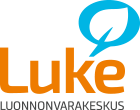In the “Strength from education and information guidance” spearhead, solutions focus on increasing knowledge and making a socio-cultural change. The goal of the solutions is to make a broad cultural change in the reduction of food waste in society at large by changing people’s attitudes and increasing knowledge.
The solutions are divided into the measures below. They will be supplemented as the work progresses. In particular, the measures address the development of education and social standards. Education plays an important part in the future behaviour of households. Food waste issues should be included comprehensively in curricula starting from early education to different subjects. Social pressure and acceptance encourage people to reduce food waste. For example, red-labelled products have quickly become widely acceptable and even reachable among different income groups as a result of food waste dialogue, shops’ initiatives and active communication. Class 2 vegetables (such as tomato and cucumber) have received a positive acceptance, and there is demand for them. In restaurants, “take what you eat” has become a more common practice. Information-based guidance alone is rarely enough to change people’s behaviour but, combined with other measures, it has been found to be effective. In other words, information-based guidance also plays a key role in reducing food waste.
| MEASURES | OPERATORS AND IMPLEMENTATION |
Education
|
|
Social norms
|
|
Information-based guidance
|
|
| Material forum
Establishing a material flow forum/bank in the food chain
|
|
